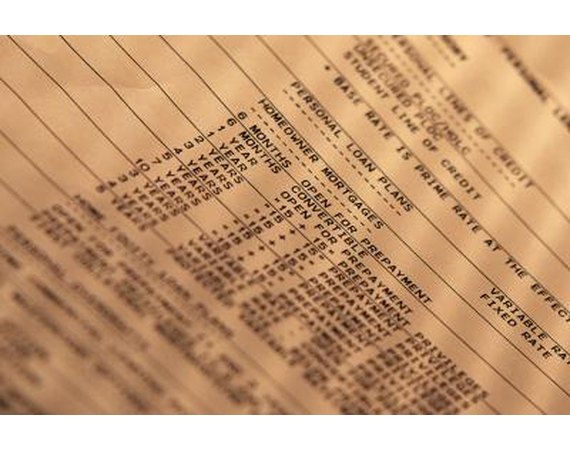
When you apply for new loan, the lender typically reviews your credit report and score to determine if you qualify for a new account. If your credit score is low, you may have trouble obtaining loans. To improve your credit score, consider paying off some of your debts.
About Credit Scores
A credit score is a number that credit providers use to evaluate your creditworthiness. To obtain your credit score, lenders make inquiries with credit bureaus. The bureaus calculate your score based on the length of your credit history, your total amount of debt, payment history, the number of inquiries on your report and the amount of your defaulted debt. If your score is too low, a lender may deny your loan application or ask you to agree to a higher interest rate.
Total Debt
Paying off debts reduces the amount of your total debt, which typically increases your credit score. Individuals with a large debt-to-income ratio usually have lower credit scores than those with lower debt-to-income ratios. However, it is important to have some open accounts to show that you can make monthly payments responsibly. If you close too many accounts, your credit score may decrease.
Payment History
Paying off debts also improves your payment history, which may raise your credit score. Your payment history accounts for approximately 35 percent of your credit score. Making your payments on time and in full each month has a positive effect on your credit score, and the longer you make your payments on time, the better the effect will be. If you fail to make your payments on time, your score decreases.
Considerations
If you have a limited credit history or a low number of credit accounts, you can raise your score by opening a few new accounts and paying them on time each month. However, paying off debts is only one of many methods you can use to raise your credit score. You also can raise your score by avoiding hard inquiries, which occur when a lender requests a copy of your credit report.







0 comments:
Post a Comment